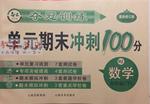题目内容
阅读理解。
Imagine that the genome (基因组) is a book. The book consists of 23 chapters with thousands of
stories made up of paragraphs, words and letters on different levels. There are one billion words in the
book, as long as 800 Bibles; if I read the genome out to you at the rate of one word per second for
eight hours a day, it would take me centuries; if I wrote out the human genome, one letter per millimeter,
my text would be as long as the River Danube. This is a huge volume, a book of great length, but it all fits
inside an extremely small cell nuclear(细胞核) that fits easily upon the head of a pin.
The idea of the genome as a book is not, strictly speaking, even a metaphor. It is true to a great extent. A book is a piece of digital information, written in one-directional form and defined by a code that
translates a small alphabet of signs into a large dictionary of meanings through the order of their groupings. So is a genome. The only difference is that all English books read from left to right, while some parts of
the genome read from left to right while some from right to left, but never both at the same time.
While English books are written in words of different lengthens using twenty-six letters, genomes are
written entirely in words of three-letter length, using only four letters, and instead of being written on flat
pages, they are written on long chains of DNA molecules (分子).
The genome is a very clever book, because in the right condition it can both photocopy itself and read
itself.
stories made up of paragraphs, words and letters on different levels. There are one billion words in the
book, as long as 800 Bibles; if I read the genome out to you at the rate of one word per second for
eight hours a day, it would take me centuries; if I wrote out the human genome, one letter per millimeter,
my text would be as long as the River Danube. This is a huge volume, a book of great length, but it all fits
inside an extremely small cell nuclear(细胞核) that fits easily upon the head of a pin.
The idea of the genome as a book is not, strictly speaking, even a metaphor. It is true to a great extent. A book is a piece of digital information, written in one-directional form and defined by a code that
translates a small alphabet of signs into a large dictionary of meanings through the order of their groupings. So is a genome. The only difference is that all English books read from left to right, while some parts of
the genome read from left to right while some from right to left, but never both at the same time.
While English books are written in words of different lengthens using twenty-six letters, genomes are
written entirely in words of three-letter length, using only four letters, and instead of being written on flat
pages, they are written on long chains of DNA molecules (分子).
The genome is a very clever book, because in the right condition it can both photocopy itself and read
itself.
1. How do human genomes read according to the passage?
A. Only from left to right.
B. Only from right to left.
C. From both directions at the same time.
D. From one direction at a time.
B. Only from right to left.
C. From both directions at the same time.
D. From one direction at a time.
2. We can learn from the passage that the human genome ________.
A. is as long as the River Danube
B. can be easily placed on the head of a pin
C. is coded with an alphabet of four letters
D. is smart enough to read and take photos of itself
B. can be easily placed on the head of a pin
C. is coded with an alphabet of four letters
D. is smart enough to read and take photos of itself
3. It can be concluded that the passage is mainly written for ______.
A. specialists in the field
B. general readers
C. natural scientists
D. readers with professional knowledge
B. general readers
C. natural scientists
D. readers with professional knowledge
4. The real purpose of the author's comparison of the genome to a book is _____.
A. to focus on the differences between the two
B. to lay emphasis on the similarities between the two
C. to simplify the concept of the human genome
D. to give an exact description of the human genome
B. to lay emphasis on the similarities between the two
C. to simplify the concept of the human genome
D. to give an exact description of the human genome
1-4: DCBC

练习册系列答案
 夺冠训练单元期末冲刺100分系列答案
夺冠训练单元期末冲刺100分系列答案 新思维小冠军100分作业本系列答案
新思维小冠军100分作业本系列答案 名师指导一卷通系列答案
名师指导一卷通系列答案
相关题目